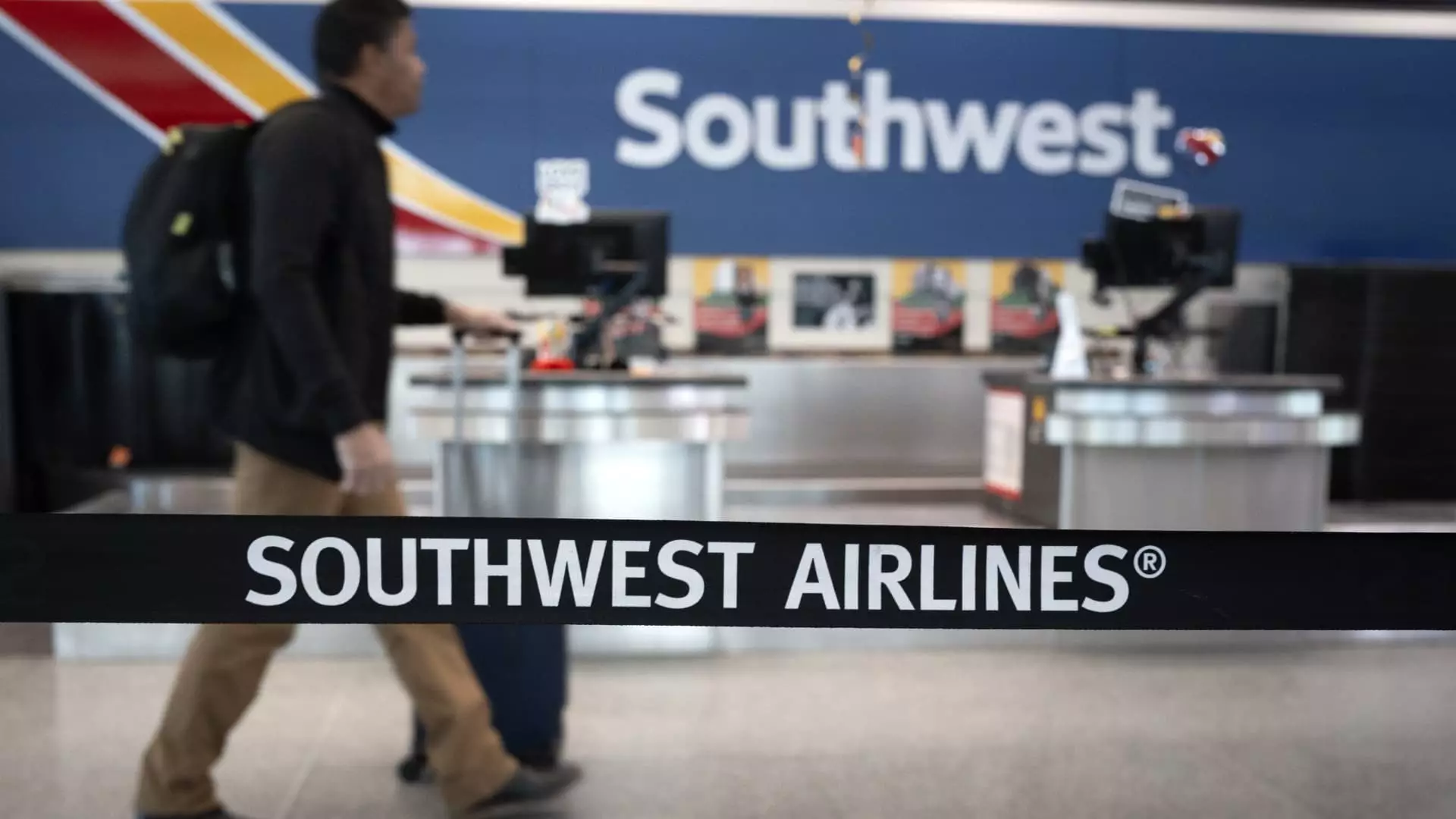For decades, Southwest Airlines has basked in the glow of customer loyalty, cultivating an image as the airline that truly valued its passengers. The promise of two free checked bags set it apart in an industry notorious for hidden fees and expensive add-ons. However, this commitment to customer-friendly policies has crumbled under the weight of financial pressure, signaling a dramatic shift in how the airline operates. With the implementation of baggage fees starting soon, the move has left many passengers feeling betrayed, as a long-standing tradition is discarded in favor of a profit-driven agenda.
The Profit Motive: Is It Worth It?
Southwest executives claim that the decision to charge for checked bags is a necessary move in the highly competitive airline industry—a sector that rakes in billions, thanks to such fees. In 2023, U.S. airlines garnered over $7.3 billion from baggage fees alone. Simply put, it’s a lucrative revenue stream that Southwest can no longer ignore as it faces increasing financial pressure, particularly amid rising operational costs. But at what cost? By prioritizing short-term financial gains over customer satisfaction, Southwest risks alienating a consumer base that has stood by it through thick and thin. The question remains: Is turning a quick buck worth sacrificing a reputation built on the promise of no hidden fees?
What About Loyalty? Not All Passengers Are Created Equal
Southwest’s updated policies also raise concerns about fairness and equality among its clientele. While frequent flyers and elite members will still enjoy the privilege of free checked baggage, a substantial portion of casual travelers will incur new costs. This tiered approach to benefits fails to acknowledge the loyalty of everyday passengers who might not fly enough to earn elite status but still contribute to the airline’s bottom line. By pitting customers against each other based on spending habits, Southwest may unwittingly foster resentment among its once-loyal traveler base.
A Shift Toward Budget Airlines: The Rise of Basic Economy
In yet another blow to Southwest’s brand identity, the introduction of basic economy tickets mirrors the tactics of lower-cost carriers like Spirit and Frontier. While the move could allow the airline to compete more aggressively for budget-conscious travelers, it dilutes the value proposition that Southwest has long represented. Passengers will now find themselves trapped in a convoluted structure where ultimate flexibility is sacrificed for perceived savings. Unquestionably, offering a “no-frills” ticket comes at the expense of customer service, inviting a comparison to other airlines that thrive on stripped-down experiences.
Long Live Open Seating? Out with the Old, In with the New
Southwest has famously relied on an open-seating model, allowing passengers to choose their seats upon boarding. This flexibility gave way to creative check-in strategies, with seasoned travelers competing for prime boarding positions. But as the airline leans toward formal seating assignments, it risks losing a unique selling point that has become part of its identity. The imminent changes indicate a broader shift towards convention and predictability, blending Southwest into a sea of indistinguishable airlines. This isn’t just about seats—it’s about a departure from an ethos that champions freedom and flexibility in air travel.
The Bigger Picture: A Reflection on Consumer Trust
In a digital age where customer feedback spreads like wildfire, Southwest’s recent policy shifts may have profound implications. Social media platforms serve as conduits for dissent, and travelers unhappy with the cessation of free checked baggage aren’t shy about voicing their frustrations, impacting brand perception significantly. The airline’s decision to pivot away from its longstanding commitment to customer satisfaction is risky; when loyalty is nurtured through genuine care rather than exploitative practices, brands can prosper.
Yet, amidst all this discontent, Southwest CEO Bob Jordan flatly states that the company has yet to see a dip in bookings. This apparent contradiction raises deeper questions about the nature of consumer behavior in the current landscape. Is it possible that passengers will overlook these changes for the sake of convenience, or will they eventually abandon Southwest in favor of airlines that better align with their expectations? No matter how one slices it, the airline’s decision to implement baggage fees represents a pivot that many see as detrimental, treading precariously on the ethos that has long defined the Southwest experience.

